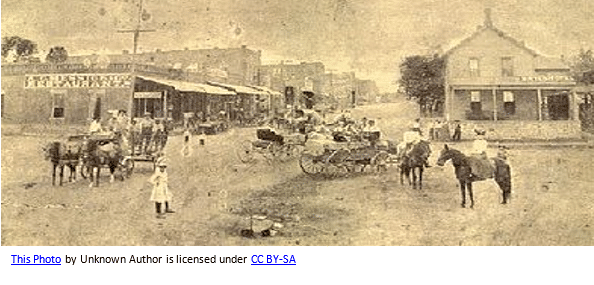Oklahoma Genealogy Treasures
 5
5Jun

“My mother, Carolina Jones, was born in the state of Tennessee and is buried there. My grandmother on my mother’s side, Nancy Jones, was born in the state of Mississippi and is buried in White County, Tennessee. I was born April 3, 1849, at Stagestand, White County, Tennessee…“[1] This paragraph began a 14 page interview of William Perry Earles of Ringling, Oklahoma, 1938, as part of a project called The Indian-Pioneer Papers.
The Indian-Pioneer Papers project began in 1936 when the Oklahoma Historical Society and the history department of the University of Oklahoma set out to obtain a writer’s project grant through the Works Progress Administration (WPA). This grant allowed employment of more than 100 writers with the charge to “call upon early settlers and (record) the story of the migration to Oklahoma and their early life here.”[2] By the time the project was completed, there were more than 11,000 interviews mostly of the early “white” settlers, but also over sixty interviews of Indians. The interviews were edited and typed and finally collected into 112 volumes to be used by anyone doing some Oklahoma genealogy work.
Oklahoma Genealogy
The best place to access these records is online through the University of Oklahoma Western History Collections, Indian-Pioneer Papers Collection. At this site there is an index which can be searched by full name, surname, place name or subject. The index will bring up any interview which includes the name being searched.
The following is another taste of what these interviews contain with excerpts taken from the ten-page interview done by Larking E. Day. His history truly “painted” a picture of life in Oklahoma Territory in the late 1800s and early 1900s. Some of the things he spoke of were: cattle drives with one having 8,000 cattle; wildlife including many “big black wooley tarantulas as big as my out-spread hand” and prairie dog migrations; “Indian war dances and pow wows”; and outlaws of which he arrested one named Osa Jones who was a notorious horse thief and cattle rustler who would steal from homes and then set fire to the to “cover up his deviltry.” From this example, it can be seen the fascinating history that can be found in these interviews.
Another resource for learning about early Oklahoma and its settlers is the official journal of the Oklahoma Historical Society which has been digitized and is  included on the Oklahoma State Library website, The journal was first issued in 1921 and is called The Chronicles of Oklahoma. This online collection is in a full-text, searchable database including scholarly articles, book reviews, notes and documents and minutes of the quarterly meetings of the historical society. Biographical information appears to also be included in some of the journals. For example, a search was made for the surname Coker, and in Volume 6, Number 1, was found a brief biography of “James I Wood, son of William S. and Melinda Coker Wood, born February 3, 1850 in Marion County, Arkansas.” The paragraph included the names of his wife, children, the fact he was elected mayor of McAlester, as well as the names of his grandparents and information on their families.
included on the Oklahoma State Library website, The journal was first issued in 1921 and is called The Chronicles of Oklahoma. This online collection is in a full-text, searchable database including scholarly articles, book reviews, notes and documents and minutes of the quarterly meetings of the historical society. Biographical information appears to also be included in some of the journals. For example, a search was made for the surname Coker, and in Volume 6, Number 1, was found a brief biography of “James I Wood, son of William S. and Melinda Coker Wood, born February 3, 1850 in Marion County, Arkansas.” The paragraph included the names of his wife, children, the fact he was elected mayor of McAlester, as well as the names of his grandparents and information on their families.
If you have relatives who lived in Oklahoma Territory in the early years of settlement, you will want to search the Indian-Pioneer Paper interviews as well as The Chronicles of Oklahoma for a fascinating history, as well as genealogical information. If you need further assistance with your Oklahoma ancestors, Price Genealogy is ready and able to assist in this endeavor.
Diane
[1] University of Oklahoma Libraries Western History Collection. “Interview with William Perry Earles of Ringling, Oklahoma.” University of Oklahoma, 1938. Interviewer: Ethel V. Elder. Interviewee: William Perry Earles. Interview ID – 10654
[2] Blackburn, Bob L. “Battle Cry for History: The First Century of the Oklahoma Historical Society.” n.d. Oklahoma Historical Society. 5 Oct. 1998.
Do you have any questions about Oklahoma Genealogy? Let us know in a comment below!
